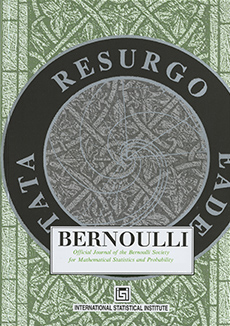Abstract
We consider design issues for toxicology studies when we have a continuous response and the true mean response is only known to be a member of a class of nested models. This class of non-linear models was proposed by toxicologists who were concerned only with estimation problems. We develop robust and efficient designs for model discrimination and for estimating parameters in the selected model at the same time. In particular, we propose designs that maximize the minimum of $D$- or $D_1$-efficiencies over all models in the given class. We show that our optimal designs are efficient for determining an appropriate model from the postulated class, quite efficient for estimating model parameters in the identified model and also robust with respect to model misspecification. To facilitate the use of optimal design ideas in practice, we have also constructed a website that freely enables practitioners to generate a variety of optimal designs for a range of models and also enables them to evaluate the efficiency of any design.
Citation
Holger Dette. Andrey Pepelyshev. Piter Shpilev. Weng Kee Wong. "Optimal designs for discriminating between dose-response models in toxicology studies." Bernoulli 16 (4) 1164 - 1176, November 2010. https://doi.org/10.3150/10-BEJ257
Information





